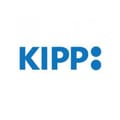
Knowledge is Power Program (KIPP)
- Issue Areas
- K-12 education
- Outcomes
- Elementary and middle school success
Program overview
Improving academic performance: Knowledge is Power Program (KIPP) is a public charter school network that operates 280 early prekindergarten, elementary, middle, and high schools in 27 regions across the country. The KIPP model aims to improve students’ academic performance by setting high expectations, developing students' social and emotional skills, providing a safe and nurturing environment, hiring and training highly effective teachers and leaders, and supporting students as they explore post-secondary opportunities. 175,000 students and alumni have attended KIPP schools.
Set up as charter schools: Like other charter schools, KIPP schools are publicly funded, but typically operate outside the direct control of local school districts. Instead, KIPP schools are directly accountable to their respective charter authorizers, which regularly review the performance of schools under their purview. Common authorizers include universities, nonprofit organizations, and school district boards. Authorization structures vary by state.
Regionalized decision making: KIPP schools are broken up into 30 geographic regions, which typically center on a given metropolitan area. Schools in a region share services like teacher training, leadership development, operational support, and data analysis. Leadership in each region are given considerable latitude around resource allocation, hiring and dismissing staff, and training teachers and principals.
Open to all students in a community: Like traditional public schools, KIPP schools are open to all students who live in a given enrollment area. There are no specific entrance requirements, like passing an exam. However, if demand for spaces exceeds spots at a given school, applicants are chosen by lottery.
- Strategies
-
Charter schools
- Cost
-
Estimated $12,731 per student per year
Multiple studies with rigorous designs demonstrate that KIPP schools are a well-supported strategy for improving academic achievement.
- A 2018 research synthesis found that students who attended KIPP schools performed an average of 12 percentage points higher in mathematics and an average of 8 percentage points higher in English/language arts than students in the control group.
Dedicate resources for teacher development: Teachers at KIPP schools have professional development opportunities, like regular observations and feedback from an instructional coach, embedded into their roles. These opportunities are supplemented by individualized supports, such as training or educational opportunities to improve in a specific area of practice.
Offer opportunities for advancement: A factor contributing to poor retention of teachers in the profession is the lack of opportunities for advancement. KIPP addresses this issue through Teacher Leader roles, which allow teachers to continue to teach, while assuming new responsibilities, like coaching other teachers or managing a grade level.
Develop a leadership competency model: KIPP’s Leadership Framework and Competency Model describes the qualities needed for organizational leaders (e.g., principals) to perform at the highest level. These competencies form the basis for selecting, developing, and promoting leaders at all levels of the organization.
Support students’ transition into college: KIPP advisors support alumni during their first two years of college through the KIPP Forward program. The program aims to boost college persistence by helping students make strong transitions into college, navigate financial matters, set and meet academic goals, and more.
Emphasizing family engagement: When families are meaningfully involved in their children’s education, youth and schools experience improved academic, behavioral, and social outcomes. Recognizing this, KIPP schools take steps to increase family engagement, such as planning quarterly parent-teacher conferences, supporting parent volunteer groups, and more.